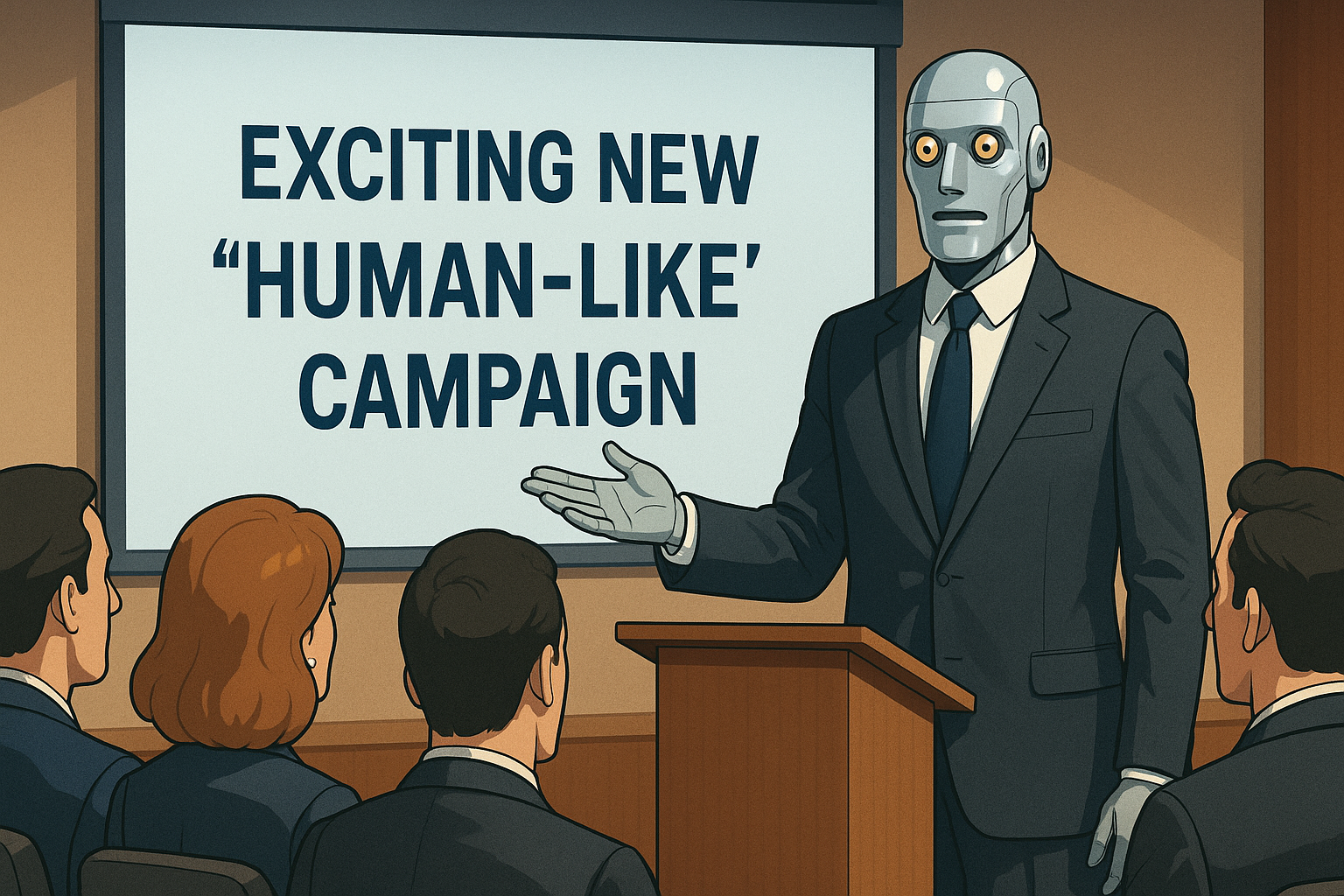Let me tell you a story.
A colleague of mine — let’s call him John — is a senior marketer at a B2B tech company in a niche but competitive space. Recently, the company was being acquired. Consultants were brought in to “streamline operations” (read: cut anything they didn’t understand). If you’ve ever seen the movie Office Space, you know exactly where I’m heading with this.
John sits down for his meeting. The first question from the consultants:
“How many leads did your campaigns actually bring in?”
He explained he could pull some numbers — first and last touch, basic attribution stuff — but the bigger initiative he’d been leading was more strategic: he created a brand persona to humanise their offering, stand out in a dry industry, and build relevance. The kind of thing no one else in the category was doing.
Their follow-up?
“But did it drive sales?”
This is such a common feeling that marketers feel, that pensive feeling that they are about to put to task and they better defend themeselves against the pure number people who think they can out-think the “pretty department”
Marketing is not decoration.
It’s direction.
If you still think marketing is just logos, colour palettes, and social posts, I genuinely don’t know how you’ve made it this far in business.
Modern marketing is:
- Behavioural psychology
- Systems thinking
- Strategic experimentation
- Customer insight
- Data interpretation
- Brand storytelling
- Friction reduction
- And yes, sometimes fonts.
We’re not here to make your decks look nice. We’re here to make sure your brand is remembered when it actually counts.
And that’s not just a warm fuzzy — it’s a growth lever. Research from the Ehrenberg-Bass Institute shows that mental availability (how easily a brand comes to mind) is a major driver of market share.
https://www.marketingweek.com/ehrenberg-bass-category-entry-points/
“But where are the leads?”
Yes. Let’s talk about that.
You can’t always tie every piece of marketing neatly back to a lead. And you shouldn’t try to. That kind of logic — “if we can’t track it, it didn’t happen” — leads to terrible decisions.
Why?
Because attribution models are fundamentally flawed.
Gartner found that B2B buyers spend just 17% of their time meeting with potential suppliers.
https://www.gartner.com/en/sales/insights/b2b-buying-journey
The rest?
It’s all happening behind the scenes — reading, Googling, talking to peers. That means most of your brand influence happens outside your line of sight.
And even when you do track content consumption, the picture is still incomplete: B2B buyers consume 13 pieces of content before making a decision.
https://martech.org/b2b-buyers-consume-an-average-of-13-content-pieces-before-deciding-on-a-vendor/
If you’re crediting the last touchpoint — the email, the form fill — you’re ignoring the other 12 things that made it possible.
So when the attribution report tells you “Email = revenue,” that’s not insight. That’s correlation wrapped in confidence.
You want results? Start by respecting the role.
Marketing isn’t sales. But it’s the reason your sales team gets in the room.
Marketing isn’t magic. But when it’s done right, it can feel like it.
When a marketer tells you they’re investing in a rebrand, or launching a bold campaign, or expanding reach through new channels, don’t roll your eyes and ask:
“How many leads will it generate?”
Instead, try:
“How does this help us become the brand our buyers remember?”
Because here’s what the data tells us:
- 81% of B2B buyers already have a vendor in mind before reaching out.
https://www.demandgenreport.com/industry-news/80-of-b2b-buyers-initiate-first-contact-once-theyre-70-through-their-buying-journey/48394/ - Long-term brand building delivers better ROI over time than short-term activation alone.
https://www.razorsharppr.com/blog/binet-and-fields-6040-marketing-rule-what-it-is-and-what-it-means-for-your-company - Cutting marketing during hard times usually backfires, despite how tempting it might look on a spreadsheet.
https://hbr.org/2023/06/marketing-when-budgets-are-down
Marketing is the engine. Starve it, and you’ll coast for a while — until you don’t.
Final thought (and a bit of a challenge)
If you’re a marketer reading this and thinking, “God, I wish my boss understood this” — send it to them.
If you’re a CEO, founder, CFO or sales lead and you’ve ever wondered, “What does marketing actually do?” — this is your answer.
It’s not about pretty. It’s not about fluff.
It’s about building the conditions for growth — before anyone ever walks through your door.
And if you don’t respect that? Well… good luck with your funnel.




